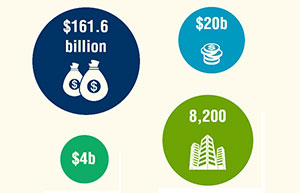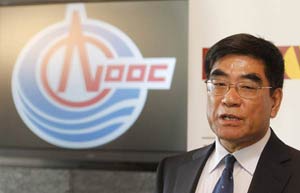Needed: A 'strong' Chinese economy
By LAN LAN (China Daily) Updated: 2014-07-08 07:30Restructuring will bring sustainable growth, World Bank president says
The world needs a strong Chinese economy over the long run, not the short run, as the nation's economic restructuring will lead to more sustainable growth, said Jim Yong Kim, president of the World Bank Group.
The most important thing for China to do is to get on a path of more sustainable growth, Kim said in an interview with China Daily on Monday.
|
 |
China's economic growth is being driven by domestic consumption on the demand side and manufacturing on the supply side, a shift from a model driven by exports and investment.
"We think these are very smart things to do. We need a strong Chinese economy over the long run, not just the short run," he said.
Growth in China is expected to decrease marginally to 7.6 percent in 2014 and 7.5 percent in 2015, from 7.7 percent in 2013, according to a recent World Bank report.
"I'm less concerned about the shrinkage in what was just extremely high level of growth ... my own view is that maintaining this reform program over time will lead to strong and sustainable growth," said Kim.
International Monetary Fund Managing Director Christine Lagarde said on Sunday that the IMF doesn't expect a "brutal" slowdown in China.
"Looking at emerging Asian countries, and in particular China, we are reassured because we do not see a brutal slowdown but rather a slight slowing of growth that has become ... more sustainable and that we see at 7 to 7.5 percent this year," Lagarde was quoted by Bloomberg News as saying.
Kim said there has been "tremendous success already" in the internationalization of the yuan, and the currency will become even more internationalized as the financial sector gains strength.
The World Bank has issued several yuan-dominated bonds, with the latest launched in London. Some of the bank's loans and other instruments in the yuan are welcomed by its client countries, particularly developing countries that do lots of trade with China, he said.
In China, about 500 million people have moved to cities since 1978, the largest urbanization shift in history. It has been forecast that another 300 million people will move to the nation's cities in the next 20 to 25 years, making China the first country to have 1 billion city dwellers.
Inevitably, this kind of rapid urbanization can lead to problems such as air pollution, Kim said. The World Bank suggested several steps for the Chinese government, including liberalization of rules on hukou (urban residency permits) and better urban planning.
There are ways to make cities denser and more compact, but also cleaner and more livable, by introducing clean transportation and making services more centralized and uniform, said Kim.
Also, cities need to be self-financing. Cities need to have more sustainable and broader sources of financing, which could be achieved through reforms in the tax system that would ease reliance on local land sales. At the same time, farmers need to be given more land rights, he said.
"China can do things that very few countries at this level of GDP per capita can do ... We have a chance to demonstrate to the rest of the world a process of urbanization that would be a model. I think that's the goal of the Chinese government, and that's certainly our goal in coming here," Kim said.
 |
 |
| China Q2 GDP seen steady at 7.4%, recovery in sight | World Bank pares 2014 outlook |
- Property developer uses helicopters and models for promotion
- China GDP to hit 6.6% next year: Credit Suisse
- China's arid north feeds water-rich south
- China orders 123 Airbus helicopters
- China urges US to stop abusing remedy measures
- Top trade partner, gateway to Europe
- German machinery producing success
- Further growth expected for auto industry

















